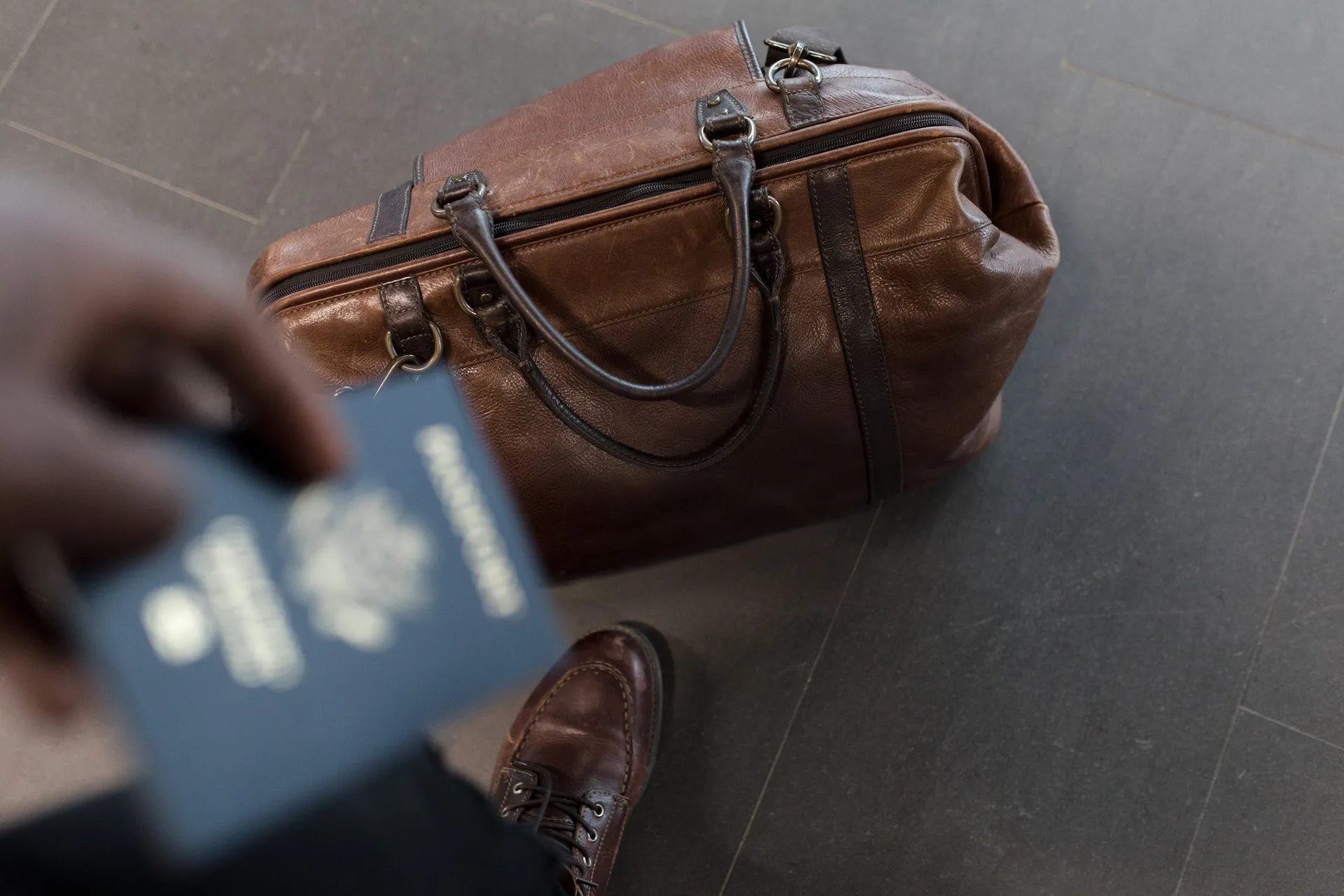Ireland Student Visa
Most non-EEA citizens who wish to study in Ireland for more than 3 months will need to apply for a long term student visa. There are however some international students who are exempt from the Student Visa requirements.
Reach out to us today on +44 (0)333 414 9244 or +353 (0) 61 518 025 to find more about applying for a Study Visa to undertake a course in the Republic of Ireland.
Read our 1001 reviews
Request a call back from our immigration experts
Benefits of Choosing IAS‘ Ireland Immigration Lawyers
When it comes to obtaining an Ireland visa or permit, IAS Ireland immigration lawyers are well-equipped to help you.
With IAS’ track record of successfully helping clients visit or immigrate to Ireland successfully, we can help you achieve your goal.
Our dedicated immigration lawyers provide our services through a comprehensive and personalised approach. With IAS, you enjoy:

Compassionate support from an experienced immigration lawyer dedicated to your success



Support in gathering supporting documents and completing a high-quality application.



Confidence that your case is being handled by an experienced team.



In-house document checks done by lawyers who are well-versed in Ireland immigration matters.
Services we Provide
Who can apply for Ireland Student Visa?
Ireland has one of the best education systems globally, and ranks highly in the world’s top countries for quality of life. Therefore, it is a popular destination for international students, with many remaining in the country after they complete their studies.
Note, If you are a citizens of UK, you do no need a student visa to study in Ireland.
However, obtaining an Ireland Student Visa can be challenging for non-EEA nationals due to its immigration process requirements. There are two immigration routes open to international students, depending on the duration of your course of study.
Those undertaking short term courses with a duration of not more than 90 days will need to apply for a short term Study Visa. However, those whose course durations are longer than 90 days will need a long term Study Visa. Each route has its own set of requirements, processes, and supporting documentation, which can be somewhat cumbersome.
With the help of an immigration consultant, some aspects of the process can be made smoother and more efficient. Our IAS team can help remove the stress of applying for a study permit.
Long Term Study Visa in Ireland
A long term study visa allows you to stay and study in Ireland for more than 3 months. You will need to obtain a valid visa before you can enter the country. For a Student Visa you will need to have been offered admission to study a full-time course in Ireland.
The course must be on the Interim List of Eligible Programmes (ILEP) provided by the Irish Naturalization and Immigration Service (INIS).
As a successful long-term study visa application candidate, you will receive a Stamp 2 permit in your passport. A Stamp 2 permit comes with certain rules, which include employment guidelines for international students who wish to work during their course. It also contains information on your visa expiry date, and when to renew it if you want to remain in Ireland after the expiration.


Ireland Student Visa Application Process
You will follow the steps below to obtain your long term student visa for Ireland:
Step 1: Enroll on and Pay for Your Course
The first step is to enroll for a course in one of the approved institutions in Ireland. After you have been offered admission, you must pay all the required fees.
Step 2: Apply for a Student Visa
After paying your course fees, you can now apply for a long stay Study Visa, also known as Long Stay ‘D’ visa. You should apply 3 months before your intended travel date.
You will submit the visa application online and send your passport along with other supporting documents for processing. You must apply for a visa from your home country or country of residence.
Step 3: Arrive in Ireland
If your visa application is successful, you can use the visa to travel to Ireland. After arriving in Ireland, you will need to undergo a border control process to determine if you are eligible to enter the country.
Step 4: Apply for Permission to Stay and Register with Immigration
After successfully passing the border control checks, you will need to register with a local immigration visa office in the district you plan to live in.
This immigration permit registration is also required for international students who don’t need a visa to come to Ireland. If you are in this category of non-visa-required international students, you must have €300 for this registration. After you have successfully registered, you will receive your Irish Residence Permit (IRP).
Ireland Student Visa Requirements
Requirements for Irish student visa may vary from one student to another, depending on the course, nationality, and some other factors. However, most non-EEA visa required student visa applicants will need supporting evidence that includes the following:
- Your Letter of Acceptance from the school, college, or university where you that offered you admission in Ireland
- Proof of your academic records in your chosen course such as past exam results and any qualifications you may have
- Evidence of your English language abilities (unless your chosen study is to learn English)
- Evidence that your full-time study covers at least 15 hours a week
- Proof of maintenance funds. You must have at least €10,000 to support yourself for your first year of studying and provide evidence you will continue to have access to a further €10,000 per year of ongoing study.
- Proof that you have paid your course fees in full
- Proof that you have private medical insurance
- A written explanation if you have any gaps in your educational history
- A declaration that you intend to leave Ireland and return to your home country once you complete your course of study
You may be required to provide more evidence as the exact requirements depend on your individual circumstances. The immigration authorities will let you know what exactly you should submit during the application process.
Short Term Study Visa in Ireland
The short term study visa is for those that want to partake in a short-term course in Ireland for 90 days or less. It is known as the short stay ‘C’ visit (Study) visa.
People can se this visa for various kinds of short term engagements in Ireland. For instance, those who only want to have a taste of Ireland sometimes get this visa to partake in certain short-term courses that only last for one semester.
Some also use it to attend an important exam or engage in an internship related to their current or future course of study. It is also available to those coming to Ireland to attend a training course and those attending a short term English language course.
If you are not sure which type of these two study visas best suits your travel needs, contact us today for guidance. We will assign you an experienced immigration consultant to help you choose the right visa and support you through the application process.


Financial Requirements for Ireland Student Visa
Non-EEA students are required to show they have access to sufficient funds to support themselves throughout their period of stay in Ireland. Currently, the required amount you must demonstrate access to is €10,000. This is one of the key requirements during your visa application.
If you have a scholarship that either partly covers or fully covers both your course fees and living costs, you must provide a letter from the relevant organization confirming the details of the scholarship.
Ireland Student Visa Processing Time
You’ll typically get a decision on your student visa application within 8 weeks of submitting your application at the visa office, consulate, or embassy.
However, the application processing may take longer during high-volume application periods. Also, omitting a supporting document or a need to verify the information you provided due to unique personal circumstances can further delay your application processing.
You can always contact the Irish embassy, consulate, or international visa office where you submitted your application for updates. If you applied at the Dublin visa office, you can check the Irish immigration portal for updates. Waiting times and new decisions are published every Tuesday.
What Happens if my Ireland Student Visa Application is Approved?
If your student visa application is approved, a visa will be placed in a blank page of your passport or travel document. The passport/travel document and other original documents submitted along with the application, such as Marriage or Birth Certificate, will be returned to you by post.
If the applicant is a minor, the visa will indicate whether they’ll be travelling alone or accompanied by an adult.
What Happens if My Student Visa Application is Rejected?
If your student visa application is rejected, you’ll be sent a Letter of Refusal explaining why your application was refused. Your passport/travel document and other original documents submitted will also be returned to you via post.
If your application was sent to Ireland, it can only be returned to an Irish or UK address. You may have to hire a courier service to deliver your documents to a different location.
You can appeal a negative visa decision if you believe your application was unjustly refused. You must submit the appeal within two months of receiving your Letter of Refusal. The appeal is free of charge.
How Can IAS Help
Our team is here to help you navigate the complexities of immigration and visa applications. We will guide you through every stage of the application process, taking the stress off you and increasing your chances of a positive outcome.
Our Irish Immigration Lawyers have a track record of helping clients visit or immigrate to Ireland successfully. Our comprehensive immigration solutions are tailored to meet our clients’ varying needs. With IAS, you’ll enjoy:
- A dedicated solicitor who’ll help assess your needs and goals to determine the right Irish visa for you.
- Expert guidance on eligibility and visa requirements.
- Support with collecting required supporting documents and completing a high-quality application.
- In-house document checks by our Irish immigration experts.
- Legal support and representation for a visa appeal if you’ve applied for an Irish student visa and your application was refused.
To learn more about our services and how we can help with your Irish student visa application, contact us today at +44 (0)333 414 9244 or via our website.You’ll typically get a decision on your student visa application within 8 weeks of submitting your application at the visa office, consulate, or embassy.
However, the application processing may take longer during high-volume application periods. Also, omitting a supporting document or a need to verify the information you provided due to unique personal circumstances can further delay your application processing.
You can always contact the Irish embassy, consulate, or international visa office where you submitted your application for updates. If you applied at the Dublin visa office, you can check the Irish immigration portal for updates. Waiting times and new decisions are published every Tuesday.
What Happens if my Ireland Student Visa Application is Approved?
If your student visa application is approved, a visa will be placed in a blank page of your passport or travel document. The passport/travel document and other original documents submitted along with the application, such as Marriage or Birth Certificate, will be returned to you by post.
If the applicant is a minor, the visa will indicate whether they’ll be travelling alone or accompanied by an adult.
What Happens if My Student Visa Application is Rejected?
If your student visa application is rejected, you’ll be sent a Letter of Refusal explaining why your application was refused. Your passport/travel document and other original documents submitted will also be returned to you via post.
If your application was sent to Ireland, it can only be returned to an Irish or UK address. You may have to hire a courier service to deliver your documents to a different location.
You can appeal a negative visa decision if you believe your application was unjustly refused. You must submit the appeal within two months of receiving your Letter of Refusal. The appeal is free of charge.


How Can IAS Help
Our team is here to help you navigate the complexities of immigration and visa applications. We will guide you through every stage of the application process, taking the stress off you and increasing your chances of a positive outcome.
Our Irish Immigration Lawyers have a track record of helping clients visit or immigrate to Ireland successfully. Our comprehensive immigration solutions are tailored to meet our clients’ varying needs. With IAS, you’ll enjoy:
- A dedicated solicitor who’ll help assess your needs and goals to determine the right Irish visa for you.
- Expert guidance on eligibility and visa requirements.
- Support with collecting required supporting documents and completing a high-quality application.
- In-house document checks by our Irish immigration experts.
- Legal support and representation for a visa appeal if you’ve applied for an Irish student visa and your application was refused.
To learn more about our services and how we can help with your Irish student visa application, contact us today at +44 (0)333 414 9244 or via our website.
Table of Contents
Table of Contents will appear here.Legal Disclaimer
The information provided is for general informational purposes only and does not constitute legal advice. While we make every effort to ensure accuracy, the law may change, and the information may not reflect the most current legal developments. No warranty is given regarding the accuracy or completeness of the information, and we do not accept liability in such cases. We recommend consulting with a qualified lawyer at Immigration Advice Service before making any decisions based on the content provided.
Frequently Asked Questions
As a non-EEA student coming to study in Ireland, you are required to have private medical insurance. At registration with the immigration authorities, you will be required to provide proof of the appropriate medical insurance.
You can book a date with one of our Irish immigration consultants today, as opposed to an immigration lawyer, to discuss what our immigration services can do for you through this number (+353) 061 518 025.
Generally, international students are not allowed to bring their families with them to Ireland based on their student immigration status. However, your spouse or partner may still join you, but they will have to make their own visa application. Their application will be judged in their own right and cannot be on the basis of their relationship with you. Children are not allowed to join or accompany their parents on a student visa. Only children born during your stay in Ireland are allowed to stay with you.
Yes, international students on Stamp 2 permit are allowed to work while studying. You are permitted to work full-time in accordance with the Irish employment law during the months of June, July, August, and September and from December 15 to January 15. But at all other times, you will only be allowed to work for 20 working hours per week.
The overall period of time a non-EEA student can be allowed to remain in Ireland to pursue a course or courses of study is 7 years. Periods of time previously spent studying courses count toward the 7-year limit.
You may be eligible to stay in Ireland after completing your course for the purpose of seeking employment under the Third Level Graduate Programme.
The programme is designed to allow legally resident educated non-EEA graduates with necessary credentials to remain in Ireland after their studies. This will be to seek a graduate level employment and apply for a general employment permit, research hosting agreement, or critical skills employment.
UK student visa holders may be able to visit Ireland, depending on their nationality. EU/EEA nationals do not require a visa to travel to Ireland. If you’re a non-EU/EEA national, you can only visit Ireland on a UK student visa if your country qualifies for a short-stay visa waiver programme or your visa was issued as part of the British-Irish Visa Scheme (BIVS).
If you do not qualify for the short-stay visa waiver programme, you’ll have to apply for an Irish short-stay Type C visa to travel to Ireland.


What our clients are saying
How our UK Immigration Lawyers can help
At the Immigration Advice Service our lawyers specialise in a wide range of UK visas, nationality and asylum applications and have represented clients in various successful complex and high-profile cases.















